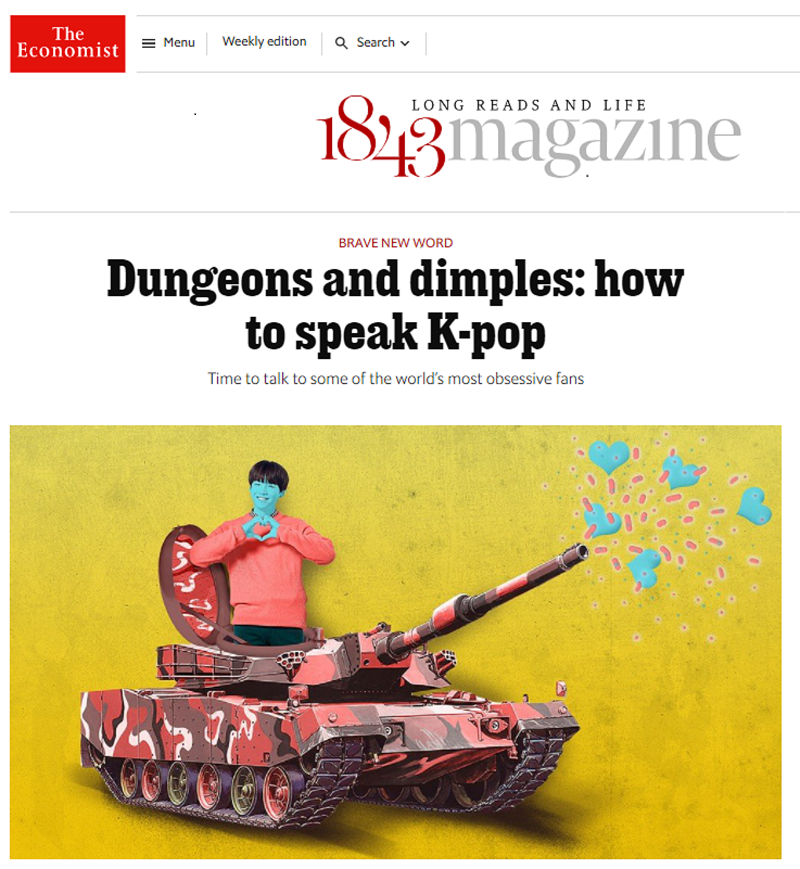
The British magazine Economist on Aug. 12 posted the article "Dungeons and dimples: how to speak K-pop" on neologisms inspired by the musical genre. (Screenshot from Economist)
By Joung Haseung
The British weekly Economist has posted an article on neologisms inspired by K-pop.
The magazine on Aug. 12 in "Dungeons and dimples: how to speak K-pop" covered the origin and use of newly coined terms related to K-pop.
The Economist called K-pop "South Korea's most influential cultural export," adding that "this perfectly choreographed cultural phenomenon (K-pop) has developed an intricate lexicon."
It also covered terms K-pop fans use to call themselves, citing as leading examples "Army" for the fan community of BTS and "Blinks" for BLACKPINK's.
"So if you don’t want to be a 'local' (someone ignorant of the K-pop scene), spend a few minutes learning the language. You’ll be stanning (being devoted to a certain Korean celebrity) before you know it," it added.
Other neologisms mentioned were "chonggong" (all-out attack or a co-ordinated action by K-pop fans), "dungeon" (an enforced break from the K-pop limelight or the life of a K-pop wannabe), "aegyo" (the act of being cute), "sasaeng" (an overly obsessed K-pop fan), "ssaengul" (bare face or a face without make-up) and "Koreaboo" (a non-Korean who is obsessed with Korean pop culture).
jhaseung@korea.kr
Most popular
- Korea.net welcomes 2025 K-influencers, Honorary Reporters
- 2025 Honorary Reporter class pledges to spread 'real Korea' worldwide
- US urged to exempt tariffs on Korea in first '2+2' trade talks
- 'Gangnam Style,' 'Baby Shark' make YouTube's 2005-25 best list
- Korean culture festival in Cuba marks 1st year of bilateral ties
